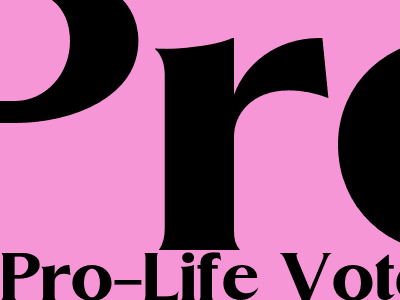
Pro-Life Voters Have Another Shot in Ohio
A New Amendment May Finally Make Abortion Unconstitutional in the Buckeye State
Pro-life voters in Ohio may have another shot at making abortion unconstitutional in the state. A new amendment, known as the Ohio Personhood Amendment, is currently being circulated for signatures. If it is approved by voters, it would amend the state constitution to define a "person" as beginning at conception. This would effectively ban abortion in Ohio, as it would recognize the unborn child as a legal person with the same rights as any other citizen.
The Ohio Personhood Amendment is similar to other personhood amendments that have been proposed in other states. In 2011, Colorado voters rejected a personhood amendment by a margin of 54% to 46%. However, the Ohio amendment has some key differences that may make it more likely to succeed.
One key difference is that the Ohio amendment is not as explicitly anti-abortion as the Colorado amendment. The Colorado amendment would have banned abortion in all cases, including rape, incest, and when the mother's life is in danger. The Ohio amendment, on the other hand, would only ban abortion after 20 weeks of gestation. This would allow for abortions in cases of rape, incest, and when the mother's life is in danger.
Another key difference is that the Ohio amendment is being backed by a well-funded and experienced coalition of pro-life groups. The coalition includes the Susan B. Anthony List, the National Right to Life Committee, and the Ohio Right to Life Society. These groups have a long history of success in passing pro-life legislation, and they are likely to put their full weight behind the Ohio Personhood Amendment.
If the Ohio Personhood Amendment is approved by voters, it would be a major victory for the pro-life movement. It would be the first time that a state has successfully amended its constitution to define a "person" as beginning at conception. This would set a precedent for other states to follow, and it could lead to a nationwide ban on abortion.
The Implications of the Ohio Personhood Amendment
If the Ohio Personhood Amendment is approved by voters, it would have a number of far-reaching implications. First, it would ban abortion in Ohio after 20 weeks of gestation. This would make Ohio one of the most restrictive states in the country when it comes to abortion.
Second, the amendment would recognize the unborn child as a legal person with the same rights as any other citizen. This could have a number of implications, including the right to life, the right to property, and the right to due process. It could also lead to new legal challenges to abortion, contraception, and other reproductive health services.
Third, the amendment could set a precedent for other states to follow. If Ohio is successful in amending its constitution to define a "person" as beginning at conception, it is likely that other states will follow suit. This could lead to a nationwide ban on abortion.
The Debate Over the Ohio Personhood Amendment
The Ohio Personhood Amendment is a controversial issue that has sparked a heated debate. Pro-life advocates argue that the amendment is necessary to protect the unborn child's right to life. They believe that the unborn child is a human being with the same rights as any other person.
Pro-choice advocates argue that the amendment is an extreme measure that would have a devastating impact on women's reproductive rights. They believe that women should have the right to make decisions about their own bodies, including whether or not to have an abortion.
The debate over the Ohio Personhood Amendment is likely to continue until the amendment is put to a vote. If it is approved by voters, it will be a major victory for the pro-life movement. However, if it is defeated, it will send a strong message that the majority of Ohioans do not support a ban on abortion.